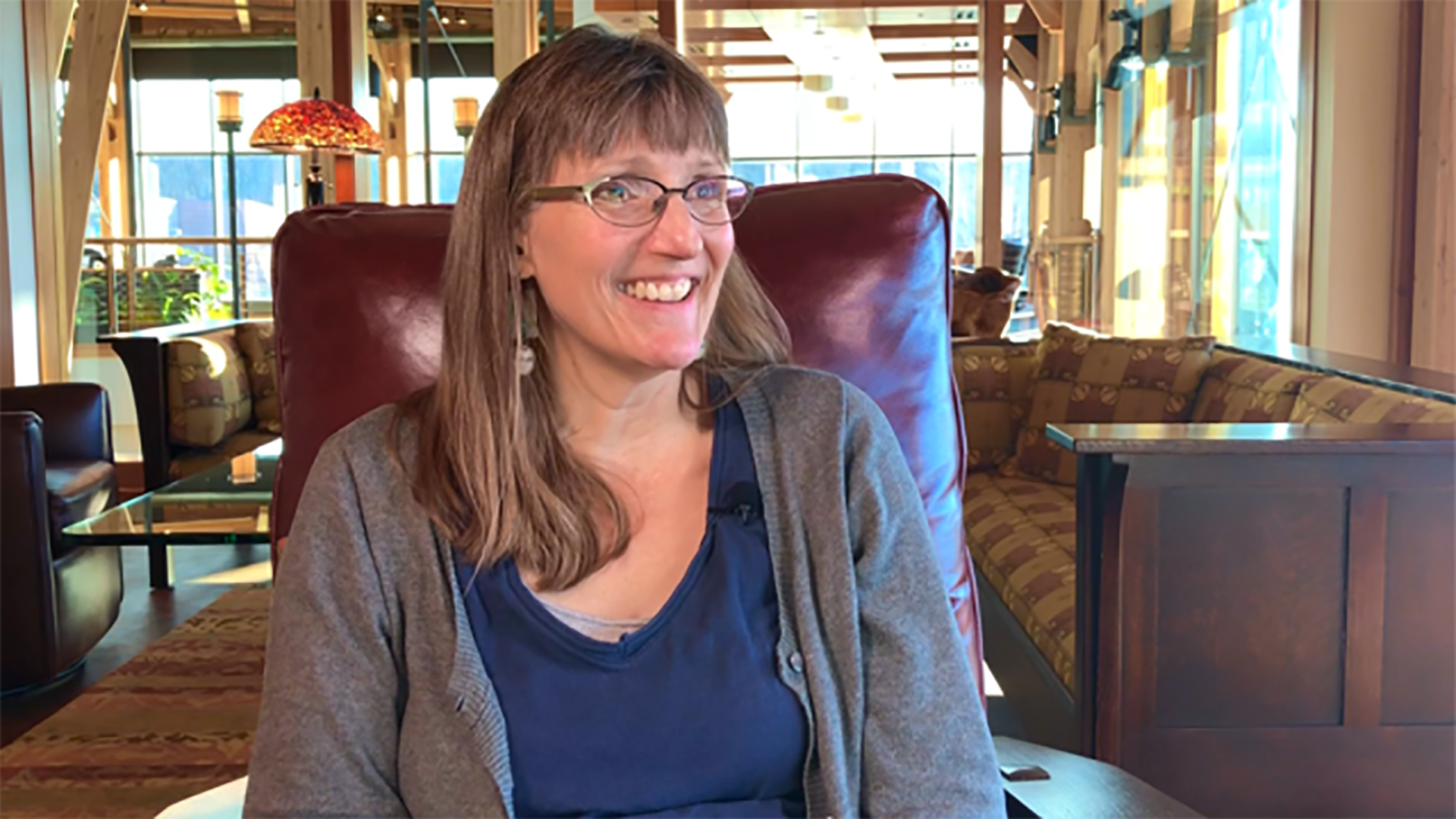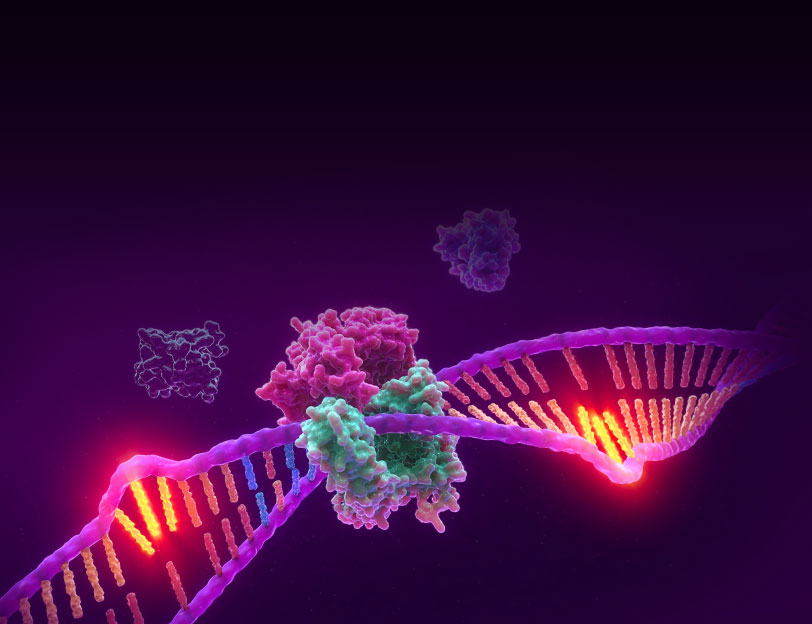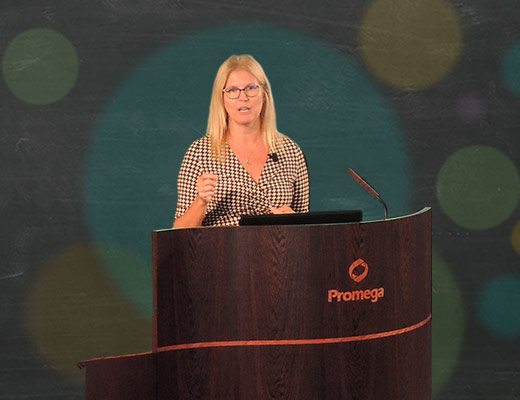Life with Lynch Syndrome
By Jordan Villanueva
In mid-2018, Carrie Ketcham attended a presentation by a prominent cancer researcher and genetic counselor about the importance of Lynch Syndrome testing. She listened as the speaker laid out an impassioned case for universal tumor screening and told stories about patients who experienced as many as five or six primary cancers before being tested. She thought about all the ways that Lynch Syndrome had affected her own life, and the lives of so many of her family members, and she knew that she needed to share her story. Perhaps, she thought, her story could encourage more people to get tested and find out their own Lynch status
“The worst part about Lynch is how many people don’t know they have it until they have cancer,” Carrie said. “If somewhere along the way it was tested…you know, a person could be spared.”
2009: First Primary Cancer
Lynch Syndrome is an inherited condition that increases an individual’s likelihood of developing several types of cancer, especially colorectal or endometrial. Carrie inherited Lynch Syndrome from her mother, who also inherited it from her mother. According to statistics provided by the American Society of Clinical Oncology, affected individuals have as high as an 80% chance of developing colorectal cancer, and women have up to a 60% chance of developing endometrial cancer, compared to the national averages of 4.3% and 2.8%, respectively.
Carrie’s family tree is filled with relatives who have experienced a Lynch-associated cancer, though none of them knew their Lynch-status at the time. Even with such a long family history of cancer, it was a surprise when Carrie was diagnosed with breast cancer at age 44.
“I’ve always been a really healthy person,” Carrie says. “I sure as heck never envisioned my life being so medically involved, I’ll tell you that.”
It was 2009, and Carrie was working part-time in a book store. Her husband was an independent contractor and they had two young children together, a five year-old son and a nine year-old daughter.
“It’s absolutely terrifying,” she says. “You do go to the dark place. You spend some time thinking about not surviving, but you’re also trying to keep things as normal as you can for your kids.”
Carrie had a mastectomy and underwent chemotherapy and radiation treatment. She dropped 30 pounds and lost her hair. The family started attending support groups with a charity organization in an attempt to normalize the cancer experience, especially for the kids. At “group,” as Carrie calls it, lots of kids had bald moms. The kids understood the gravity of the situation, but managed to leave behind some of the fear and stigma that often accompanies having a parent with cancer.
"It's humbling...Cancer is a financially catastrophic event in people's lives."
2014: Second Primary Cancer
While Carrie was going through treatments for her first cancer, a family member asked if she was planning to have genetic testing. At that point, Carrie assumed that the only available or recommended test was for BRCA mutations.
“There wasn’t a very strong case for it,” Carrie explains. “Mom had [breast cancer] when she was 64 and hers wasn't a big deal, so I just didn’t.” Carrie later confirmed that she does not carry a BRCA mutation.
When she was diagnosed with colon cancer in 2014, though, there was a very strong case for genetic testing. On January 2, after spending the New Year’s celebrations with relentless nausea and fever, Carrie went to the emergency room with what she thought was appendicitis. After receiving a CT scan, she learned that there was a mass in her colon.
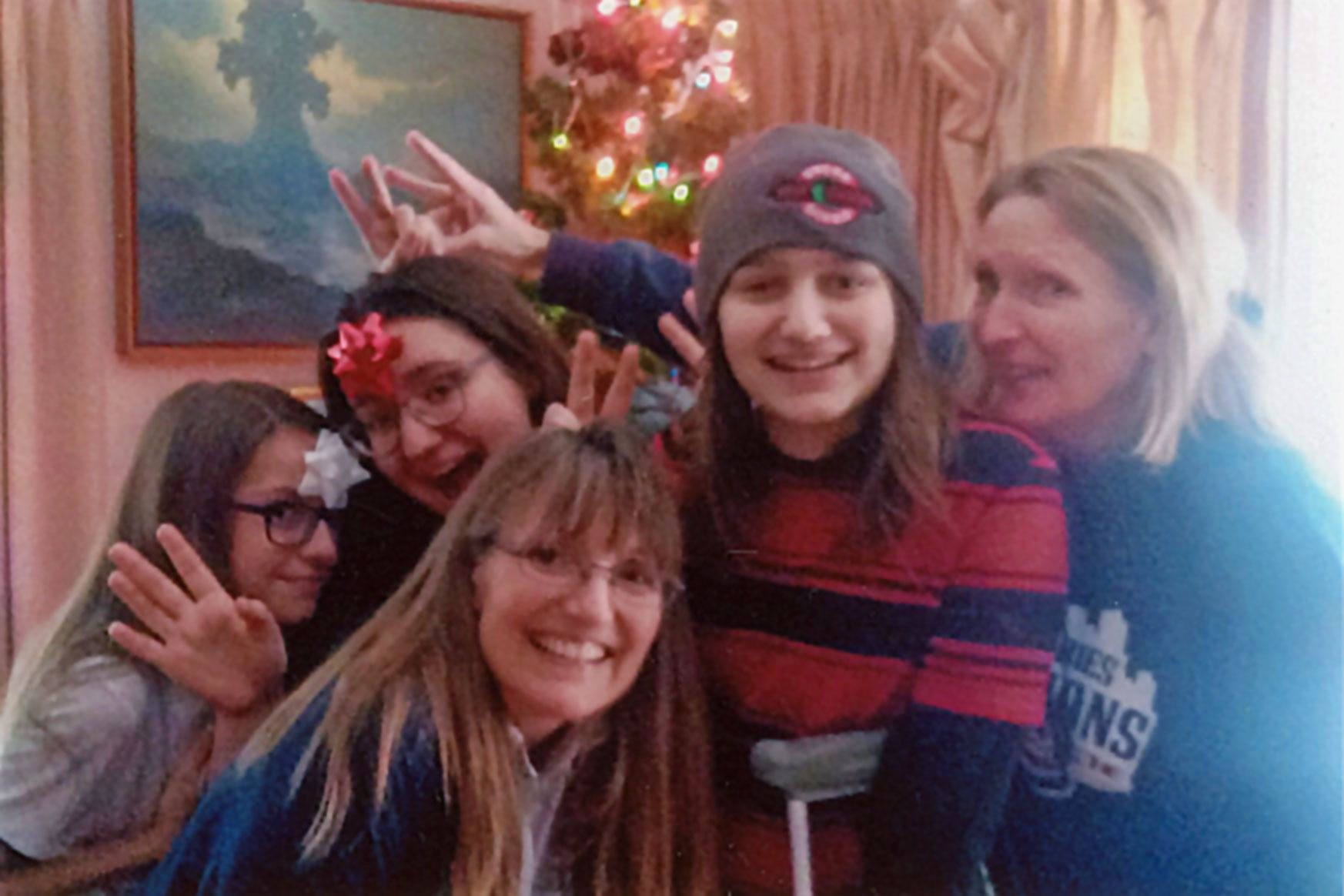
Carrie celebrates Christmas 2016 surrounded by her two children, her sister and her niece.
“They were like, ‘No, it’s a brand-new primary cancer. It’s not metastasized breast cancer.’ But I was pretty sure there must be some kind of connection between the two cancers. Two primary cancers in your 40s – that is very odd.”
Carrie had surgery to remove part of her colon. During that procedure, the surgeon noticed that the nearby lymph nodes were hard and inflamed, which he said indicated that the cancer had almost certainly metastasized. The ensuing tests revealed that the cancer had not, in fact, metastasized, and that the inflamed lymph nodes had been the cause of Carrie’s New Year’s pain.
“Those lymph nodes maybe saved my life,” Carrie says.
After the surgery, Carrie was declared cancer-free for the second time. She didn’t need any chemo or radiation, but her oncologist wasn’t ready to let her go.
“I think at that point, he and my husband and I were all on the same page. This was just too coincidental. I remember having that discussion and [my oncologist] put us in touch with the genetic counselors at the University of Wisconsin.”
Carrie met with a genetic counselor who explained the tests and every possible outcome. She went through the short test procedure when the results came back, they showed that she carried a mutation in the MLH1 gene, indicating that she did, in fact, have Lynch Syndrome.
“And…I felt very overwhelmed,” Carrie says. “I felt mad, I felt despondent…I felt like my body was betraying me.”
“I was used to thinking of cancer as this mass that has invaded my body,” Carrie wrote in her blog. “The reality is that every cell in my body is mutated and unable to catch the genetic typos that most of the population does with ease. If my cells were an English term paper, I would get a D.”
After her diagnosis, Carrie worked with the genetic counselor to spread the word to the rest of her family. Carrie has eleven first cousins on her mother’s side, and according to her pedigree, all of them were at risk of also carrying Lynch Syndrome. The genetic counselors provided a detailed letter to send to the family, and Carrie drafted her own personal note.
“Dear Mom, Sisters & Cousins,” she wrote, “Enclosed please find a letter that I send to you with a heavy heart […] As such, there is a 50% chance that you also have a mutated MLH1 gene and are at a greater risk for certain kinds of cancer.”
“My greatest hope is that each of you tests negative for Lynch Syndrome. You are in my heart and thoughts,” the letter concluded.
2017: Third Primary Cancer
“I felt really good sending out that letter,” Carrie says. “I felt a bit like I should have a cape or something, because I was doing a superhero thing.”
After Carrie sent the letter to her family members, many of them chose to be tested. Several of them returned positive results, including the daughter of a cousin who hadn’t spoken to the family in many years. Carrie’s letter sparked a new connection in that long-neglected relationship. She and her family shared joy each time someone received a negative test result and offered love and support for each positive one.
“I have cousins who chose not to test,” Carrie says, “and I can’t imagine ever willingly withholding information from myself that could help me stay alive. I think there is definitely that element of ‘head in the sand.’ And for some folks, that’s just how they have to roll. That’s their choice, but it would never be my choice.”
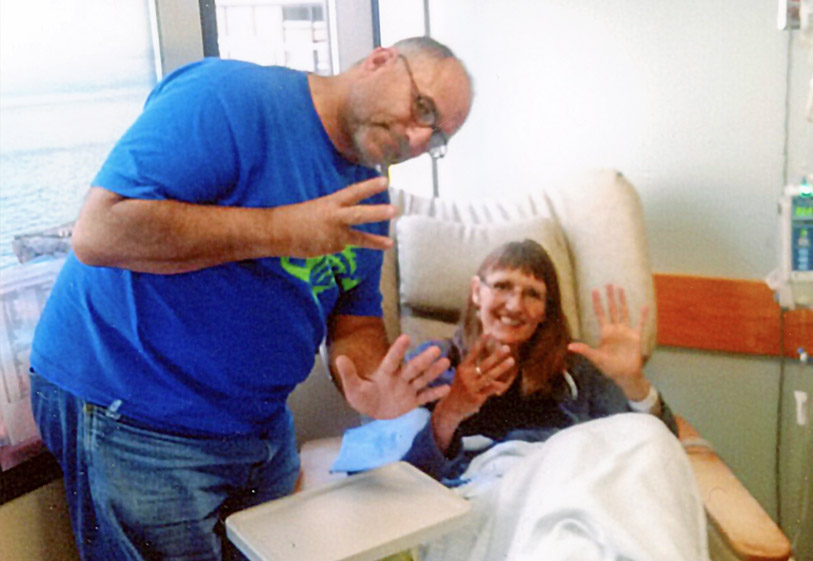
Carrie and her husband celebrate finishing her eighth chemotherapy treatment in 2017.
Carrie faced a more difficult decision at home, however. Her genetic counselor recommended waiting until her children turned 18 before talking to them about Lynch Syndrome and genetic testing. That was no problem for her daughter, who had turned 18 and graduated high school, but her son was only 14. Her son already struggled with a chronic bone disease that often had flare-ups which took him out of school for days at a time. Carrie describes the potential Lynch Syndrome diagnosis as “another pile of poop on his shit sundae.”
“The genetic counselors want them to feel empowered to make a choice on whether to be tested, so we went along with that,” Carrie says. “So we’re sending out all these letters [to family members] on the sly. The kids are pretty smart, yet here we were, having to hide this kind of big deal. I have to say, in all my cancer experiences, that secrecy was the hardest part.”
"Dammit, I just want you to have a good time."
In 2017, less than three years after her Lynch Syndrome diagnosis, Carrie was diagnosed with her third primary cancer. This time, it was in her pancreas. She had spent enough time in the medical system to understand that the statistics on pancreatic cancer weren’t in her favor—in fact, she describes it as “the 800-pound gorilla of cancers.”
“I don’t know if it resonates with my son, but my daughter certainly understands what the diagnosis is like. And she was just graduating high school and I was like, ‘Oh, dammit, I just want you to have a good time.”
With her third primary cancer fresh in her mind, Carrie resolved to talk to her daughter about Lynch Syndrome, but could never find the right time. She decided to wait until after high school graduation, then extended it through her daughter’s senior summer. Soon she was waiting through her daughter’s transition to college. Eventually, after using midterms to justify even further delays, she realized there would never be a perfect time.
“We were alone in the car in November and I said, ‘You know how I seem to have a propensity for developing cancer? Well, there’s a reason.”
Carrie explained Lynch Syndrome to her daughter (who insisted that she understood how genetics works) and offered her the opportunity to be tested. Her daughter immediately decided that she wanted to know her status.
“She said, ‘If somebody is gonna get it, I hope it’s me, because [my brother]’s had enough.’ That was really beautiful, and she was completely genuine. That was really touching.”
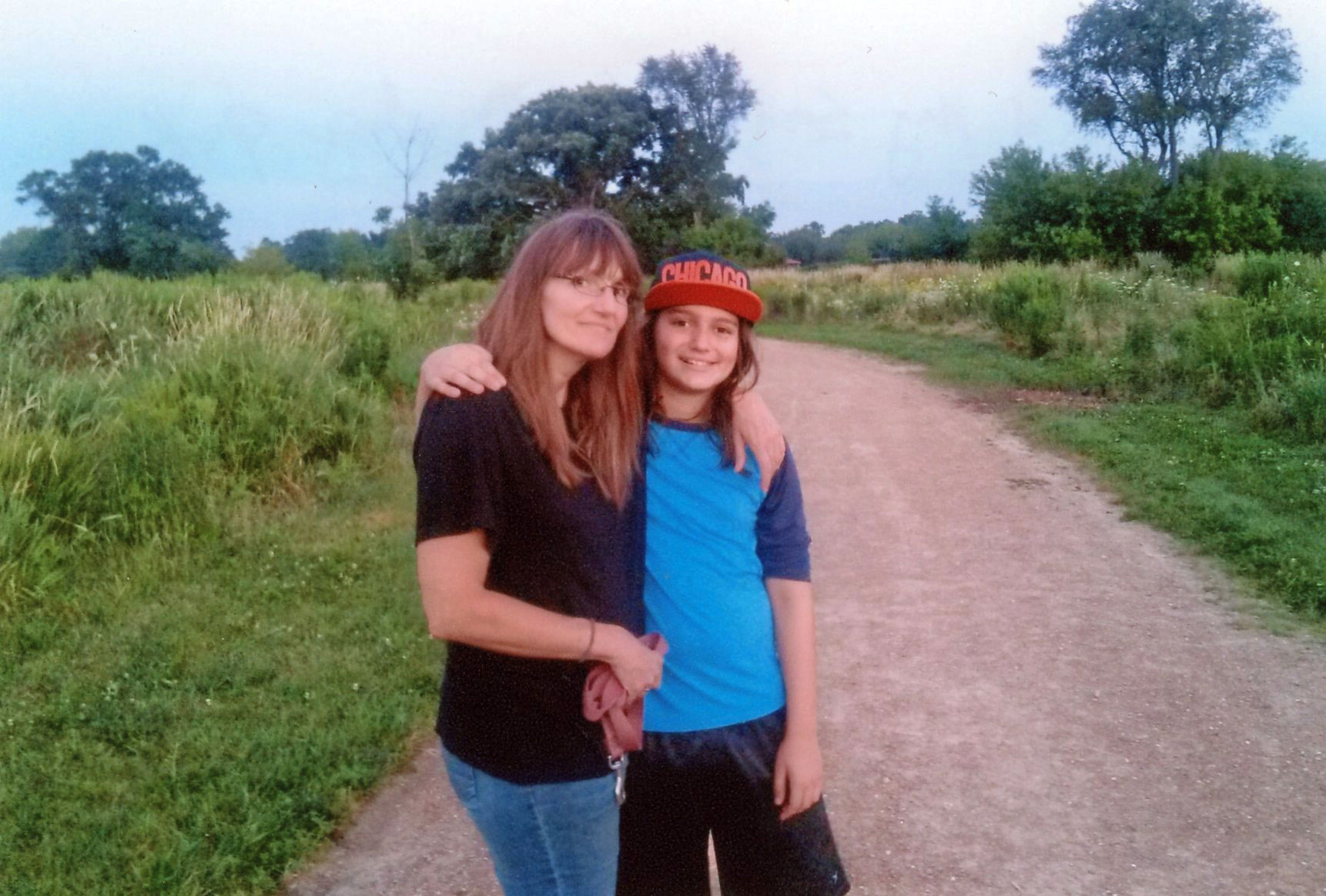
Carrie and her son in 2016.
Carrie’s daughter resolved to schedule a testing appointment, but in the meantime, Carrie was still struggling with the decision on whether to tell her son. She knew that the genetic counselors had instructed them not to tell him, but she wanted to make sure she was able to personally talk to him about Lynch Syndrome and the implications of a diagnosis, and her own prognosis made that future less certain. Finally, she went to his therapist for help. The therapist, who knew the boy very well, fully supported telling him the truth.
“My son has never known me any other way,” Carrie says. “Since he’s been 5 years old, I’ve had cancer. It’s always been a part of our lives. But, you know, I go back to normalizing the cancer experience, and to me, it felt empowering to give him the choice at age 15.”
Carrie and her husband called their son into the dining room for one of their dreaded family meetings. Family meetings usually involved updates about Mom’s cancer, but this time the conversation focused on Carrie’s son. Carrie and her husband explained everything they knew about Lynch Syndrome, and after listening intently, Carrie’s son stood up from the table and announced that he wanted to be tested. They didn’t argue with him, and Carrie made the appointment.
“I didn’t realize how scary it was for him until my husband showed up at the clinic to surprise him. As soon as my son saw him, he just kind of relaxed his shoulders and said ‘Aw, Dad, thanks for coming,’ and gave him a hug. And then I realized he was being brave for me.”
The results arrived several weeks later. He was positive.
Carrie dreaded having to deliver the news to her son. Then, one night, moments before leaving for a friend’s birthday party, her son offhandedly asked her if his test results had ever come in.
“I can’t not say, so I had to tell him then,” Carrie says. “And…it rocked his world. It rocked his world for a couple of weeks. What he said to me, which was heartbreaking, was ‘Mom, I’m so scared because I’ve seen what you’ve gone through and I’m afraid of that. I don’t wanna go through that.’”
“But kids are so resilient and brave. I said, ‘You’re gonna get those colonoscopies and they’re gonna help make sure it doesn’t happen.’ To know what’s going on in your body is very empowering and it could save your life. I can always point to my mom, who lived to 86 [with Lynch Syndrome]. And in the bigger picture, given the collection of cancers that affect people with Lynch, he obviously doesn’t have to worry about endometrial and all of those.”
Carrie’s daughter finally scheduled a testing appointment and soon learned that she did not have Lynch Syndrome. Though the conversation where her son learned that his sister was negative was uncomfortable, Carrie says the family was thrilled with her daughter’s results. For Carrie, it was satisfying just to know that both of her children now had concrete information about their genetic status and health outlooks.
“In retrospect, if I had found out when they were 6 and 10, I probably would’ve told them then,” Carrie says. “Anytime there’s a secret, it makes things scarier. You know your own kid, so you have to make that decision for yourself. For my kids, it was the right thing to do.”
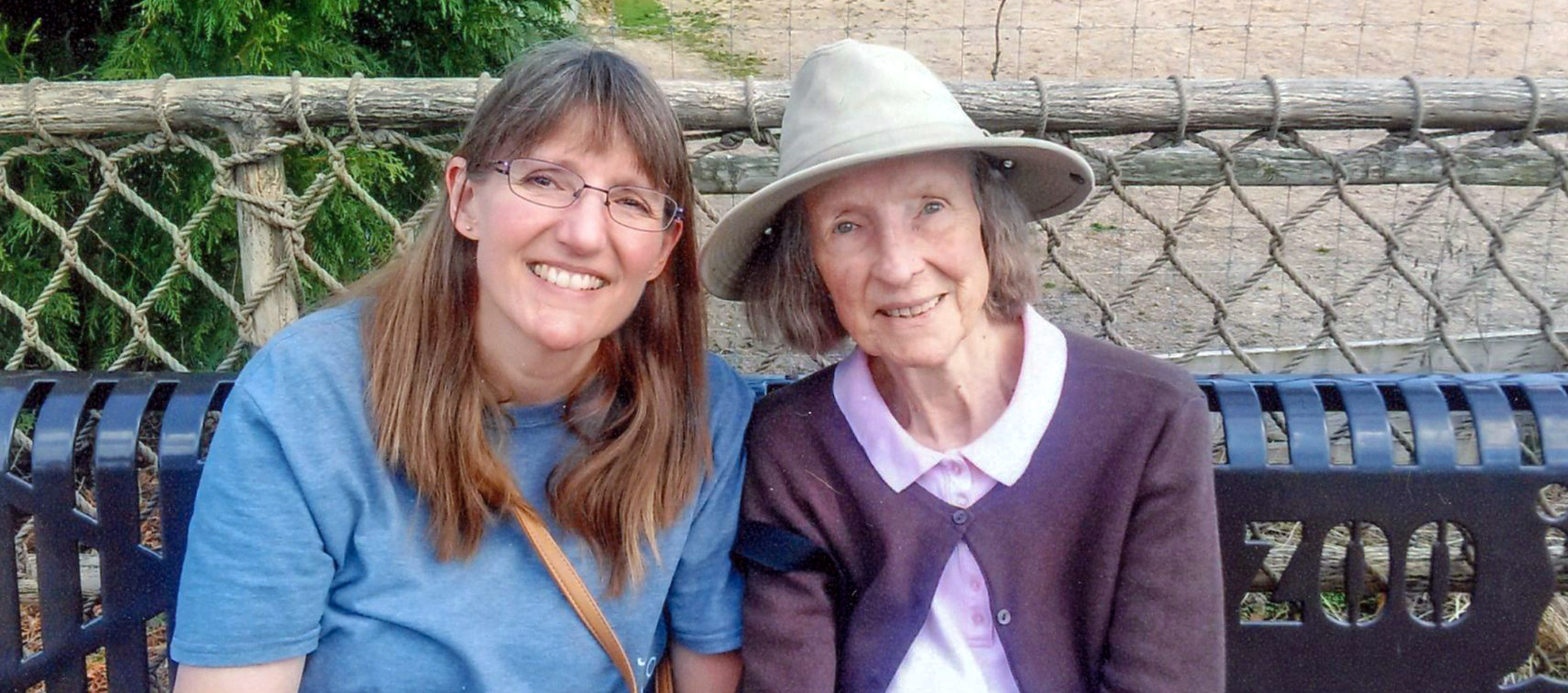
Carrie and her mother at the zoo in spring 2016. Carrie's mother passed away two months later.
Lynch Syndrome Advocacy
Today, two years after being diagnosed with pancreatic cancer, Carrie spends her time gardening and caring for the family’s two dogs. She’s skydived, visited the Grand Canyon, checked off a few books from a “100 Books to Read Before You Die” list and hopes to take her son to the Smoky Mountains this summer.
“I just don’t have it in me to get involved [with an activist group],” Carrie says. “I work two jobs and I have just so many hours and so much energy in a day. But I created a blog, so my story would just be there if they ever needed or wanted information. And I want to be there for my family.”
Carrie says she often thinks about her cousins who have been diagnosed with Lynch Syndrome, especially the ones with children. She knows firsthand what Lynch Syndrome could mean for their lives, and possibly for their kids’ lives, but it comforts her to know that they understand their genetic background and have the means to advocate for their health. She decided to share her story publicly when she realized she could use it to influence people to get tested.
“I’m thrilled to have the opportunity to talk about it, especially if it would help get more people tested. Part of why I went through everything I’ve been through is because I didn’t know about Lynch. I want to get the word out. Your knowledge is power, and it’s going to keep you healthy and safe.”
Hear more of Carrie's Story
